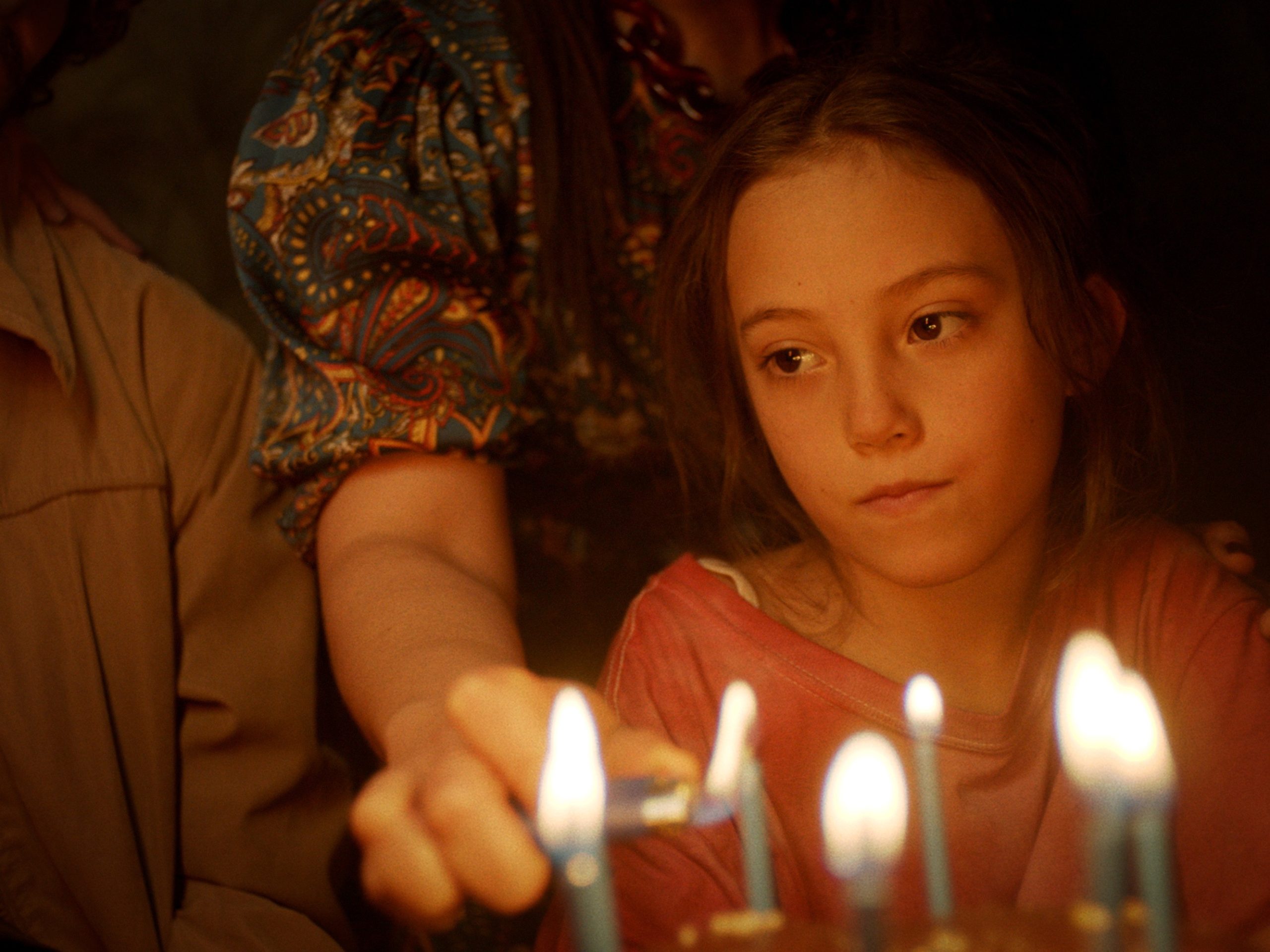The characters of Tótem don’t just appear onscreen; they take it over. From the top there’s the patriarch Roberto (Alberto Amador), who speaks using an electrolarynx and, when not dryly cajoling his flock, enjoys pruning a handsome Bonsai. There are his daughters Alejandra (Marisol Gasé), who we meet mid-phonecall, mid-ciggie, and covered in hair dye, and Nuria (Montserrat Marañon); their children, the young Marthe (Saori Gurza) as well as a gamer and a stroppy teen whose names I lost track of. There is Alejandra’s brother, an artist named Tona (played by the screenwriter Mateo García Elizondo), and his partner Lucia (Iazua Larios), with whom he has a daughter, Sol (Naíma Sentíes). This lively ensemble are joined here and there by a mystic, a party of friends, a cat named Monsi, two dogs, three snails, a parrot, a scorpion, enough plants to fill a modest botanical garden, and a pestering drone.
Playing out over roughly the course of a day, it follows the family as they gather for Tona’s 27th birthday. The numeric milestone here is less significant than the creeping concern amongst loved ones that it might be his last. Tótem is directed by Lila Avilés, a Mexican filmmaker who used a very different interior in her debut, the widely admired The Chambermaid. In that film Avilés used the bedrooms and hallways of a high-rise Mexico City hotel as a way to talk about class; focusing on a cleaning lady who was ever-washing, ever-scrubbing. Aesthetically and comparatively, Tótem relishes the mess. The goal of its production design (crafted by Nohemi González Martínez) is less to do with any sibling’s fecklessness than to simply show the clutter of life––especially in contrast with one that might be on the way out.
As if to sardine all of that in even further, Avilés has chosen to present her tumultuous film in a boxy 4:3 ratio. Cinematographer Diego Tenorio also shoots it handheld––imagine a warmer, less-toxic Festen. Some moments are so exuberant that you start to worry they might break out of Tenorio’s narrow margins. There is a visit from a seer (played for slightly cliché laughs), who does the requisite sage-burning and spirit-banishing. There’s a lovely little sequence of Sol lifting snails from her magnifying glass and sticking them to a painting on the wall. (In a film of many textures, this might be the nicest mix: from glass to acrylic, via slime.) Early on there is the startling sight of a sheet of newspaper, sculpted into the shape of an ice cream cone, with its bottom jammed into a child’s waxy ear and the rim lit on fire.
All of this plays a role that goes beyond simple table-setting for the main event. The only time Avilés takes the action outside of this residence is in her opening sequence, as Sol and Lucia drive to the party in a car generously, if not exactly safely, stacked with helium-filled balloons. Together they hold their breath as they go through a tunnel: “What did you wish for?” Lucia asks; “For dad to stay alive” is the girl’s response, as straightfaced as physically possible. Sol will not be allowed to see him until much later and is kept away from conversations about chemotherapy. In her confusion she begins questioning his love for her. The director will wait until act three to introduce the man: a handsome artist stricken with cancer who needs two attempts to make it outside to the party. There he sits and listens to speeches in his honor like a man desperately resisting the idea that this birthday is his last. “You can fall, but you cannot break,” his carer (Teresita Sánchez) gamely reminds him. (Never fishing for cheap emotions, Avilés also suggests that the woman is siphoning off his paintings for a little extra cash. C’est la vie.)
It’s a wonderfully busy piece of work, fraught with messy emotions but in too much of a rush for overt sentimentality; though it does allow for one or two softer moments. The image of Roberto pruning his bonsai amidst all the commotion might be an obvious metaphor, but it’s no less effective for it: Tótem shares the man’s belief that with just the right care and attention (not too much, not too little) something as unruly as a family can be held together, if for a moment, and even shaped into something nice.
Tótem premiered at the 2023 Berlin International Film Festival.

